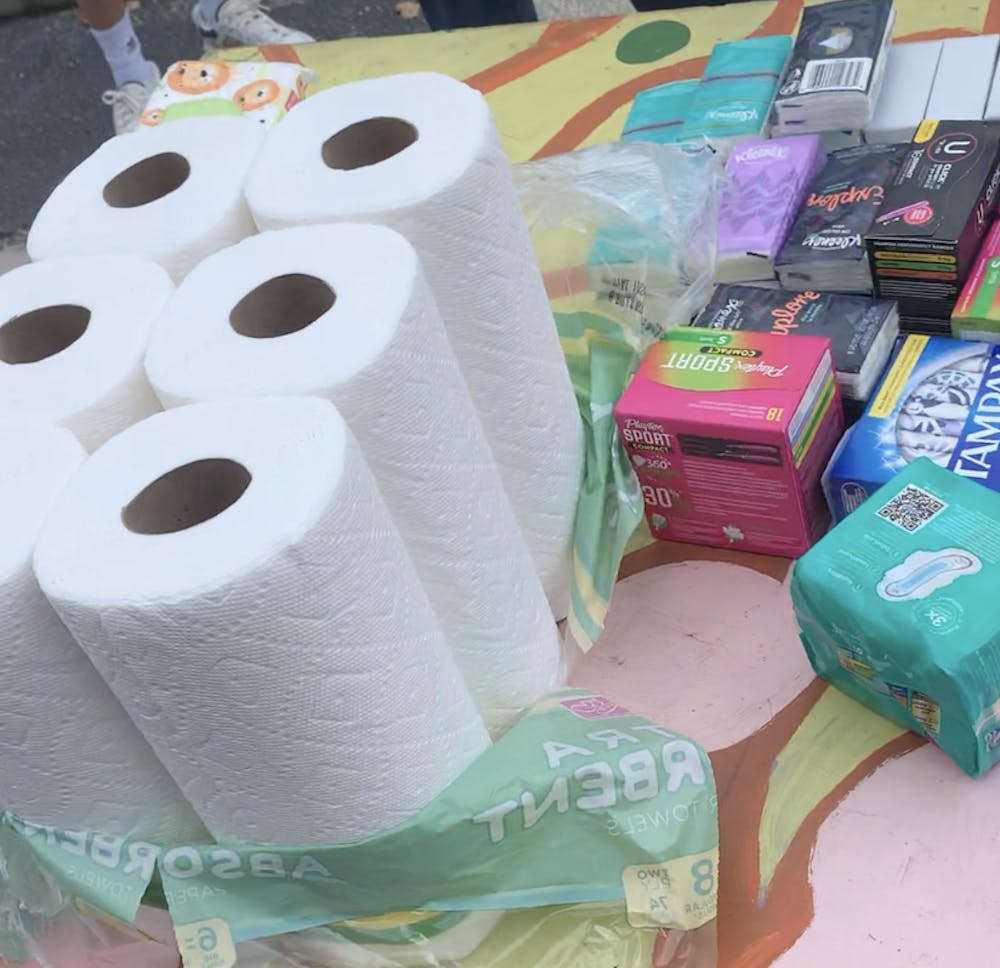Duke Mutual Aid held its first basic needs center outside of the Duke Coffeehouse Oct. 29, where students handed out fresh produce, hygiene supplies and political education resources to Duke and Durham community members.
DMA members contributed their own money to purchase the items distributed at the event from local supermarkets, including shampoo, body wash and soap, pads and tampons, paper towels, tissues and baby wipes. Food available at the basic needs center included fresh produce, such as peppers, eggplant, squash and collard greens.
Since the organization was founded during the pandemic, the basic needs center has been one of DMA’s core projects. The event aims to build community in Durham through material aid, complementing DMA’s other projects involving financial aid.
DMA members debated multiple ways to host a basic needs center before deciding on the format used at the October event. Over the summer, DMA members decided they wanted a community-centric, pre-existing space, rather than a permanent center.
“It’s so that people in the community, when they receive the resources, aren't just picking up resources and leaving, but ideally, are talking and connecting,” junior Jenna Schiffer said.
Organizers drew inspiration from other college's mutual aid basic needs centers. But unlike other campus mutual aid events, DMA decided against pursuing Duke funding due to the “limitations that might place on us in terms of whether or not Durham community members can get access to it,” said Huzyfa Fazili, a senior and DMA organizer.
Members also compiled and distributed political education material about mutual aid projects.
One of the graphics, created by Women for Political Change, detailed how to start a mutual aid group. Titled “How to Build a Mutual Aid Pod,” the infographic identified seven steps community members can take to form mutual aid groups.
Moving forward, DMA hopes to continue with events such as the basic needs center, as well as expand their new political education initiatives to include presentations from different student groups and featured speakers promoting mutual aid.
They hope to create a communal space where “people can come to help each other out, but also receive help,” all while “moving away from this charity model that creates a transactional relationship between Duke and Durham at large,” Fazil saidi.
Get The Chronicle straight to your inbox
Sign up for our weekly newsletter. Cancel at any time.

Audrey Wang is a Trinity senior and data editor of The Chronicle's 120th volume. She was previously editor-in-chief for Volume 119.

